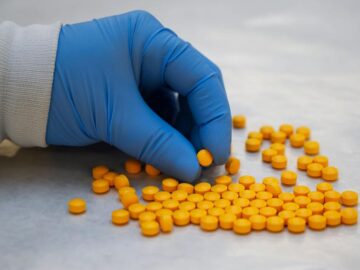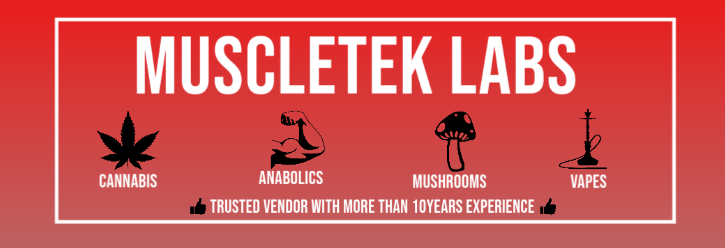Arms Trafficking Case Puts Europe-Paraguay Pipeline on the Map

Thousands of weapons trafficked from Europe and Turkey with the help of corrupt officials and later seized in Brazil has put a spotlight on the extensive market for illegal firearms in Paraguay.
A joint-operation carried out by Brazilian, Paraguayan, and US authorities at the start of December 2023, dubbed “Operation Dakovo,” uncovered the transnational arms trafficking scheme to Brazil with the help of Paraguay’s Directorate of War Material (Dirección de Material Bélico – Dimabel).
The operation revealed that a Paraguayan company named International Auto Supply (IAS) imported more than 45,000 weapons into the South American nation between 2014 and 2023. Of those, at least 25,000 were then sold to two of Brazil’s most powerful criminal groups, the First Capital Command (Primer Comando da Capital – PCC) and Red Command (Comando Vermelho – CV), according to Paraguay’s anti-drug force (Secretaría Nacional Antidrogas – SENAD).
In Europe, the weapons were shipped from Turkey, Slovenia, Croatia, and the Czech Republic.
“The case makes clear that Paraguay is a logistics hub for international arms trafficking,” said SENAD head Jalil Rachid during a press conference.
Corrupt officials within Paraguay’s military allegedly helped the trafficking network operate. This included José Antonio Oruéa, Dimabel’s former director; Josefina Cuevas, the former chief of Dimabel’s imports division; as well as Bienvenido Fretes, the ex-director of the country’s weapons registry. Authorities arrested them and several others implicated in the case.
At the end of November, a joint investigation from Última Hora and Telefuturo revealed Dimabel had lost track of more than 17,300 weapons legally imported into Paraguay between 2022 and 2023, or 40% of the total weapons imported into the country during that time, according to customs data.
Since 2020, Brazil’s Federal Police force has seized more than 650 weapons linked to this network across 10 different states, contributing to record seizures seen along the Brazil-Paraguay border. Many of the weapons intercepted in Brazil were manufactured in Turkey and Europe.
Given the scale of the problem, Paraguay President Santiago Peña announced at the end of October last year that weapons imports would be temporarily suspended, a move that will remain in place for the foreseeable future.
InSight Crime Analysis
Despite suspending weapons imports, a lack of oversight and official corruption have hindered Paraguay’s efforts to tackle international arms trafficking networks, which will continue using their access to weapons manufacturers to exploit Paraguay’s thriving illegal arms market.
In Paraguay, 73 companies imported at least 129,480 weapons into the country between 2016 and 2023, according to customs data. Bruno Langeani, an investigator at the Sou da Paz Institute, told InSight Crime that both the quantity of imported weapons and the number of companies involved in selling them in places like Ciudad del Este, along the border with Brazil, outweigh the capacity of the legal market in a country of 7.4 million people, which he said is evidence that arms are being siphoned off to the illegal market.
“The problem has been there for decades. Sometimes we take one measure domestically or internationally that affects it and reduces it a little bit. And sometimes those controls loosen and the problem increases again,” said Langeani.
In 2018, ex-President Horacio Cartes also suspended weapons imports. But after partially lifting those measures in 2021, imports again rose to levels seen in past years.

On several occasions in the past, weapons exporters have limited their operations with Paraguayan companies due to firearms making their way into the hands of Brazilian criminal groups. Brazil imposed a special tax in 2001, for example, while the United States temporarily halted exports altogether in 2018.
In other cases, certain companies have stopped operating in Paraguay in order to avoid being associated with organized crime groups, according to Langeani. The Croatian company HS Produkt stopped doing business in Paraguay in 2020 after weapons they exported to the country were seized in Brazil.
That said, pistols and other high-powered weapons have continued entering the country via alternative suppliers, especially in Turkey. According to Langeani, the illegal arms trade will persist so long as exporters in countries like Turkey, Israel, and China are willing to operate without any consideration for their end use.
In 2022, Paraguay’s government announced changes to Dimabel’s leadership and that they had acquired a tracking system to monitor imported weapons. However, ensuring weapons are properly registered and tracked has not prevented them from being lost or trafficked into Brazil. In fact, Operation Dakovo underscored the major role that official corruption plays in facilitating illegal arms trafficking through Paraguay.
“The level of corruption and the people involved in the hierarchy, I think it’s the biggest that we have seen in the past,” Langeani said of the case. “I can’t recall anything as profound.”
Found this interesting? Then check our main news page where you can find all articles related to Crypto, Crime, Darknet, Security and much more!




















